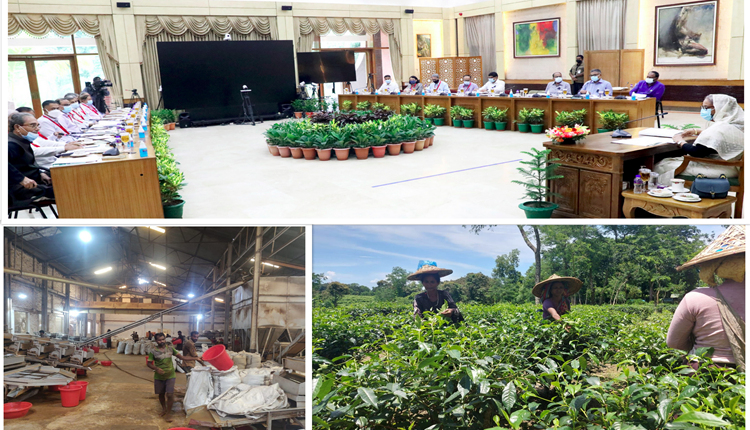Majority of the tea-workers resumed work after their wages were raised from Taka 120 per day to Taka 170 per day following Prime Minister Sheikh Hasina’s intervention. The tea workers of 167 tea plantations, mostly based in the Moulvibazar area of the country. The tea plantation workers were on strike for the last 18 days demanding a daily wage of Taka 300 in place of the current Taka 120 per day.
Prime Minister Sheikh Hasina held a meeting on Saturday with the Tea Garden Owners Association where owners of 13 tea-gardens were present. With the increase in wages from Taka 120 to 170, other benefits to the tea-workers will also be raised proportionately, said Dr. Ahmad Kaikaus, Principal Secretary to Prime Minister Sheikh Hasina on Saturday.
The workers get annual leave allowance, festival leave with pay, sick leave, plucking bonus along with their daily wages. The Principal Secretary said that employer’s contribution to provident fund and annual festival allowance as per the attendance in work will also increase proportionally. According to tea-garden owners, on an average under the old wage, the workers were getting approximately Taka 500 per day as wages.
Prime Minister Sheikh Hasina will hold a meeting with the tea workers also soon.
Bangladesh is one of the largest tea-producers of the world. It employs more than 1.5 lakh workers spread over the 167 plantations in MoulviBazar and Sylhet areas. Commercial tea cultivation in this area was started in 1854 by the British who brought workers from Orissa, Assam, Bihar and other areas of India to work in the plantations. Most of the workers belong to the Dalit Hindu communities. According to a study conducted by the ILO in 2016, tea-estate workers are among the lowest paid workers plagued by illiteracy, lack of medical facilities among other problems. More than 64 percent of the tea-workers are female.


Comments are closed.